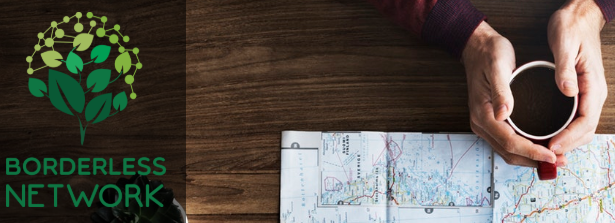Learning trajectory on Green Education in Partnerships

In 2014, the Borderless Network initiative was launched. This network, consisting of partners from the whole green education column (AOCs, HAO- institutions and Wageningen University) developed a common ambition and agenda for the internationalization of green education. One of the core elements of this agenda is “cooperation in the golden triangle, in order to contribute to structural development and dissemination of knowledge and capacity at an international level”.
Multiple partnership modalities are applied between green education institutes and government, private sector, civil society and/or other knowledge institutes in which these actors are active in the host country and in the Netherlands. The Borderless Network identified a research need to know the different partnership modalities that are applied and to evaluate what can be learned from these partnerships to shape future collaboration.
Responding to the research need a learning trajectory was executed by HAS University of Applied Sciences, on behalf of the Borderless Network, and financed by the Food & Business Knowledge Platform (F&BKP). The main objective of the research is twofold (1) to capitalize on knowledge about- and experience in partnerships to improve future collaboration and (2) to unlock these experiences, knowledge and insights for educational development (e.g. new forms of education that fit 21st century skills). The research trajectory consisted of a review of selected literature and elaborated concepts and tools of partnership experts and a review of documentation of four cases studies along with semi-structured interviews with stakeholders in these cases. The (intermediate) results have been shared in multiple workshops, where representatives from the green education sector, government representatives and private sector were present. The outcomes of the learning trajectory have also been used by a Borderless Network core team to shape a training/coaching trajectory on partnership building and implementation.
Results
The results are divided in the societal role of Green Education in Partnerships, Green Education partnership development and Green Education competence development.
Societal role of Green Education in Partnerships
In the case studies, green education institutes have been involved as (strategic) partners with a number of specific roles, depending on the context and the maturity of the partnership, e.g. network development or project implementation:
- Initial training: curriculum development of education partners (problem- and project-based learning, connection of education with the labor market)
- Lifelong Learning: (short) professional courses aimed at professionals in professional practice
- Partnership learning: anchoring of the organization as a knowledge partner, in the context of innovative projects with government, business and social partners, aiming at local goals and/or high level development goals such as global food & nutrition security.
Green Education Partnership development
The partnership expertise review shows that there is highly relevant expertise on partnership development and functioning available with various institutes in the Netherlands and their international partners. This expertise can help the green education sector to develop their competences to enable effective participation of Green Education in partnerships.
In the case studies it became clear that practitioners in the trajectories of the Borderless Network are often not aware of this partnership expertise (on process and content), and consequently the application of this expertise is very limited.
Green Education competence development
In the review of the case studies, it also became clear that the competence of green education staff that participates in partnerships can be further enhanced.
Representatives of Borderless Network partners have formulated a number of possible measures towards that ambition:
- Training & coaching programs aimed at the improvement the competences of professionals that participate in partnerships / projects
- Conducting an enabling organisation aimed at the facilitation of professionals to participate in partnerships / projects (education and project planning, front and back office)
- Anchoring partnerships and projects in education programs with students in hybrid learning environments (assignments, curricula).
Next steps
The results show opportunities in competence development, project development, and in creating a more enabling environment for green education staff to participate in partnership building and implementation. The development of core competences (brokering, designing and facilitating hybrid learning) of professionals engaged in partnerships and education will be taken up by individual education institutes (e.g. HAS) as well as by the Borderless Network as a joint effort. The aims here are threefold: 1) Green Education institutes will function more effectively in partnerships; 2) Green Education staff will be more effective in facilitation of partnerships and 3) Students will learn skills that enable them to effectively participate in future partnerships.
The modalities of these programs are currently in development with a core team of Borderless Network partners, and may include on-line & off-line (blended) competence development programs, developed/offered with partnership and education expert institutions.
Creating a stronger enabling environment can be induced by better positioning the Borderless Network and by increasing investments in partnership building. Although the Green Education institutes in the Netherlands enjoy a strong international reputation, future positioning of the Borderless Network in emerging markets is needed. Concrete activities could be: strategic cooperation with the network of agricultural counsellors, structural participation in economic & trade missions, and representation in strategic networks (government, business, education). In terms of investments, Green Education institutes generally do not have core funding to enable their participation in international partnership projects and programs. A joint effort to facilitate access to external funding (finance desk) for this purpose is needed, which is recognized by both traditional funders (e.g. Ministry of Economic Affairs, Ministry of Agriculture, Nature and Food Quality, Netherlands Enterprise Agency (RVO)) as well as Borderless Network representatives. The development of more professional front office/back office business development functions at the individual education institutes and/or the Borderless Network should therefore also be a priority on the agenda of the board members of the Borderless Network.





